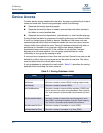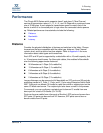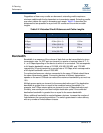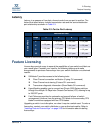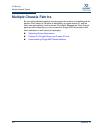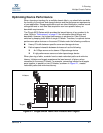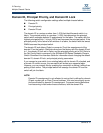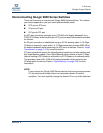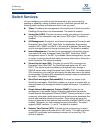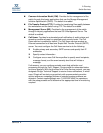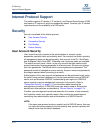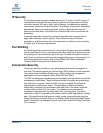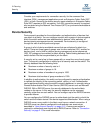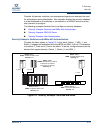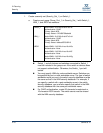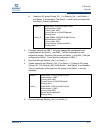
2–Planning
Switch Services
2-10 59229-05 A
Switch Services
You can configure your switch to suit the demands of your environment by
enabling or disabling a variety of switch services. Familiarize yourself with the
following switch services and determine which ones you need:
Telnet: Provides for the management of the switch over a Telnet connection.
Disabling this service is not recommended. The default is enabled.
Secure Shell (SSH): Provides for secure remote connections to the switch
using SSH. Your workstation must also use an SSH client. The default is
disabled.
GUI Management: Provides for out-of-band management of the switch with
Enterprise Fabric Suite 2007, QuickTools, the Application Programming
Interface (API), SNMP, and SMI-S. If this service is disabled, the switch can
only be managed inband or through the serial port. The default is enabled.
Inband Management: Provides for the management of the switch over an
inter-switch link using Enterprise Fabric Suite 2007, QuickTools, SNMP,
management server, or the API. If you disable inband management, you can
no longer communicate with that switch by means other than an Ethernet or
serial connection.The default is enabled.
Secure Socket Layer (SSL): Provides for secure SSL connections for
Enterprise Fabric Suite 2007, the QuickTools web applet, the API, and
SMI-S. This service must be enabled to authenticate users through a
RADIUS server when using Enterprise Fabric Suite 2007. To enable secure
SSL connections, you must first synchronize the date and time on the switch
and workstation. Enabling SSL automatically creates a security certificate on
the switch. The default is disabled.
QuickTools web applet (EmbeddedGUI): Provides for access to the
QuickTools web applet. QuickTools enables you to point at a switch with an
internet browser and manage the switch through the browser. The default is
enabled.
Simple Network Management Protocol (SNMP): Provides for the
management of the switch through third-party applications that use the
Simple Network Management Protocol (SNMP). Security consists of a read
community string and a write community string that serve as passwords that
control read and write access to the switch. These strings are set at the
factory to these well-known defaults and should be changed if SNMP is to be
enabled. Otherwise, you risk unwanted access to the switch. The switch
supports SNMP versions 1, 2, and 3. The default is enabled.
Network Time Protocol (NTP): Provides for the synchronizing of switch
and workstation dates and times with an NTP server. This helps to prevent
invalid SSL certificates and timestamp confusion in the event log. The
default is disabled.



